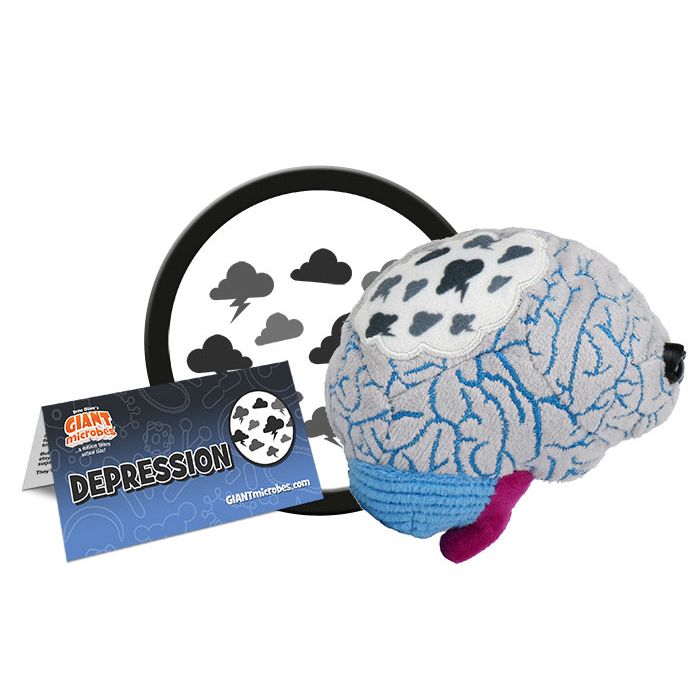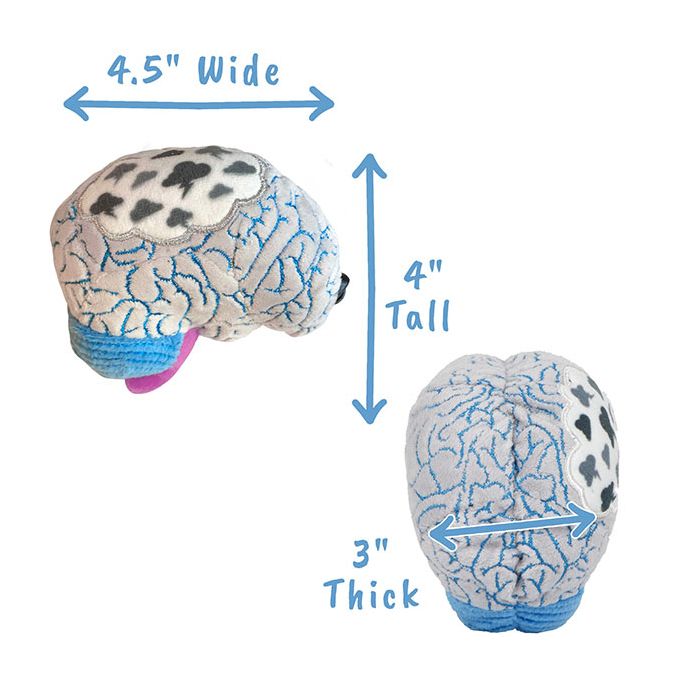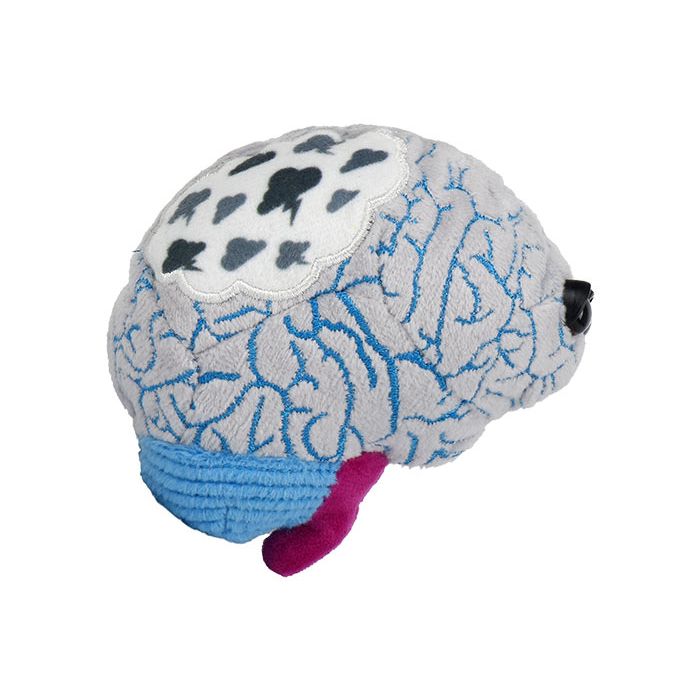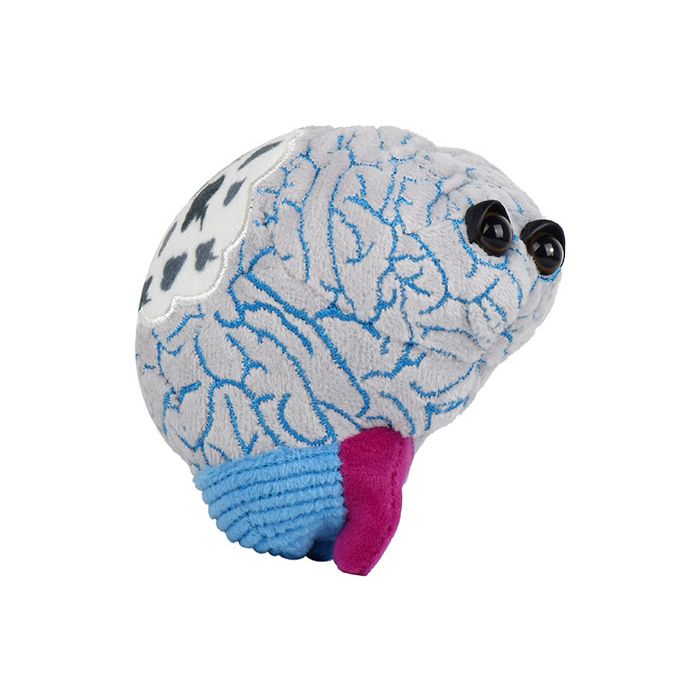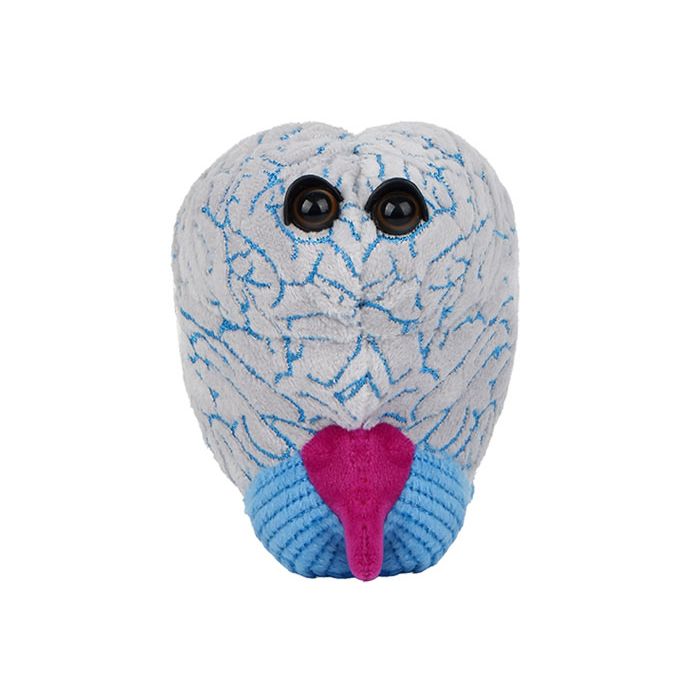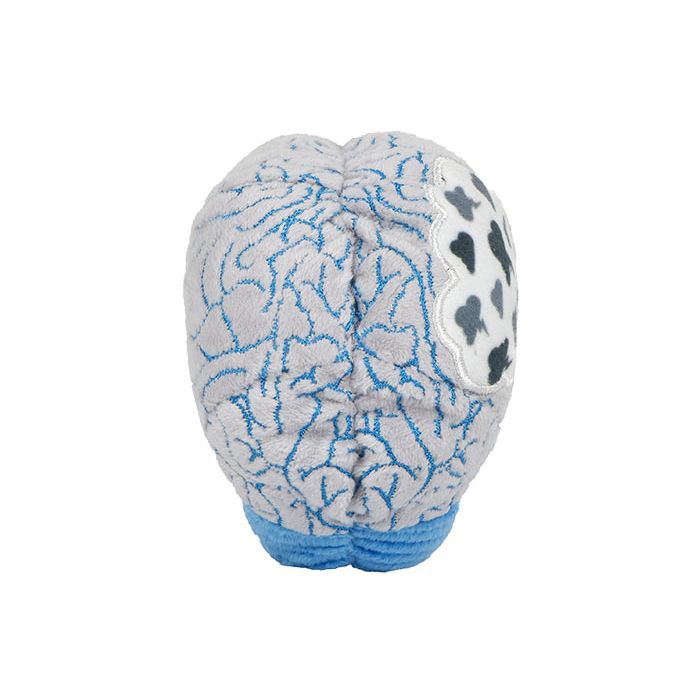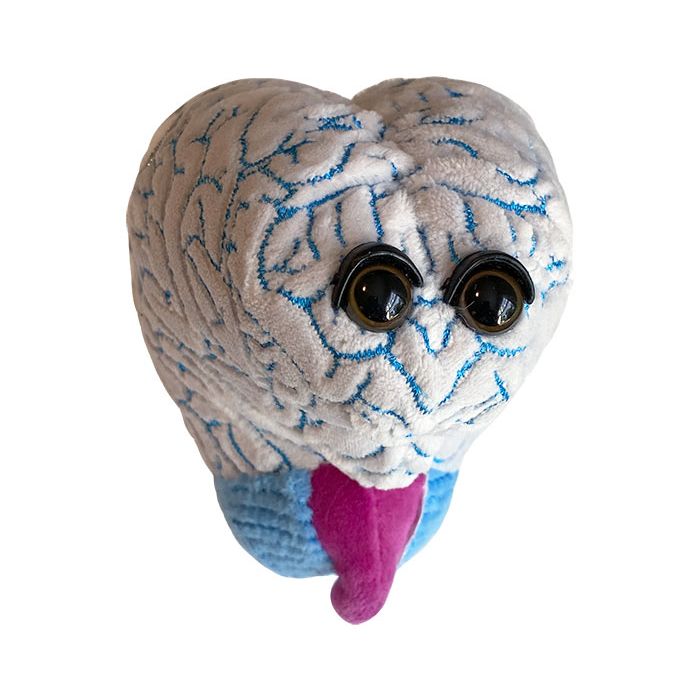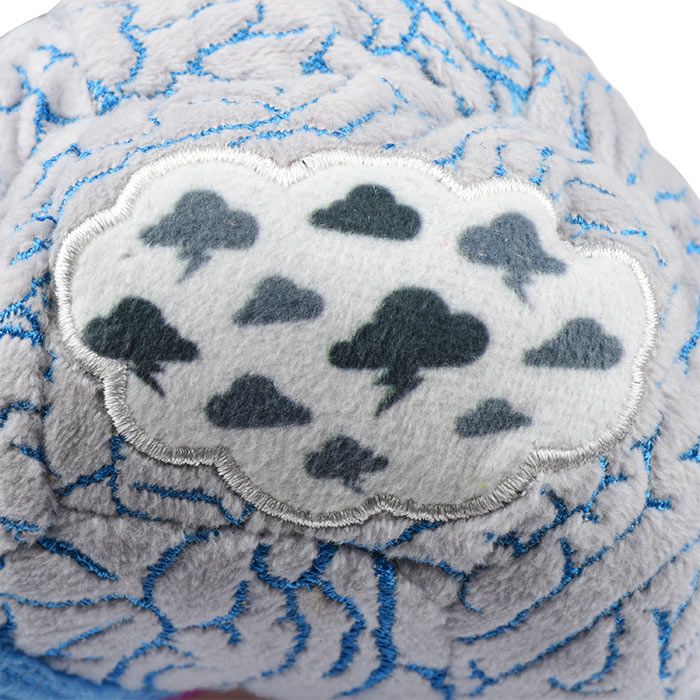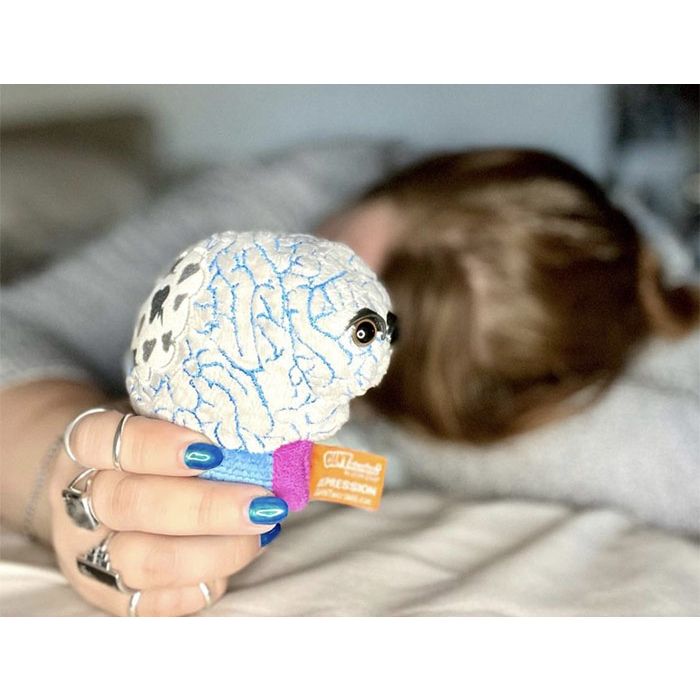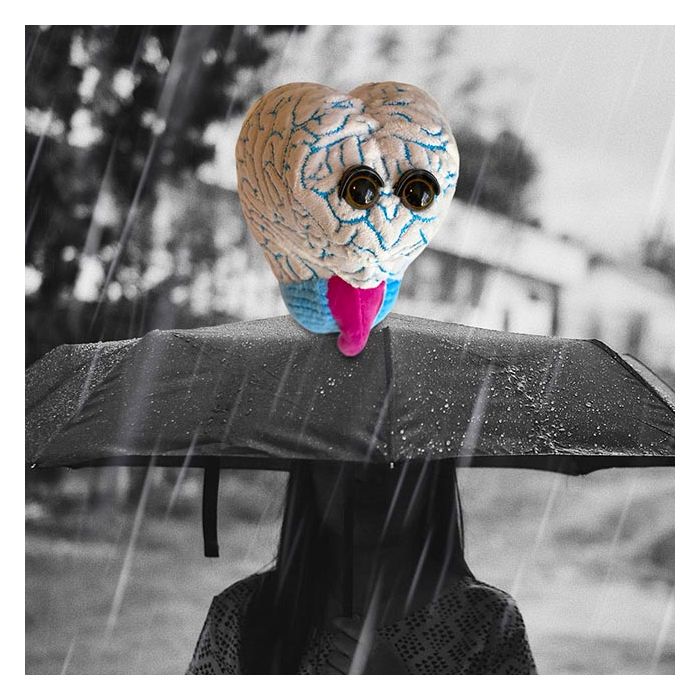Depression
Depression is the most common mood disorder in the U.S. and prevalent throughout the world. It is also referred to as major depressive disorder or clinical depression. This extremely debilitating mental illness consists of repeated and ongoing sadness, loss of interest or excitement in activities, decreased appetite and energy, and inability to concentrate.
This plush representation features a brain with a thought cloud outlined by a silver lining. Soft, cuddly and makes the most memorable emotional support gift for loved ones dealing with mental illness.
For families, teachers, healthcare professionals, public health agencies and friends - this is a unique, memorable and useful tool to help educate, spread awareness, and hopefully get more people talking about this complicated and vitally important mental health topic.
Size: 4.5" x 4" x 3".
The National Alliance on Mental Illness is dedicated to building better lives for those affected by mental illness. NAMI's alliance of local affiliates and state organizations work in your community to raise awareness, educate and provide support. 5% of your purchase will be donated to NAMI.
Product Details
Additional Information
| Sizes | Giantmicrobes are based on actual microbes, cells, organisms and other critters, only 1,000,000 times actual size! Gigantic (GG) 16-24" XL (XL) 10-15" Original (PD) 5-8" Keychain (KC) 2-4" with clip |
|---|---|
| Materials | Plush from all new materials. Stuffed with polyester fiber fill. Surface washable: sponge with water & soap, air dry. |
| Packaging | Each plush microbe includes a printed card with fun, educational and fascinating facts about the actual microbe or cell. |
| Safety | Every product meets or exceeds U.S. and European standards for safety. For ages 3 and up. |
All about Depression
FACTS: Depression is the most common mood disorder in the U.S. and prevalent throughout the world. It is also referred to as major depressive disorder or clinical depression. This extremely debilitating mental illness consists of repeated and ongoing sadness, loss of interest or excitement in activities, decreased appetite and energy, and inability to concentrate. People with depression are sometimes so fatigued that they don’t get out of bed all day, yet have a hard time falling asleep at night. Depression can cause insomnia because melatonin, the hormone that regulates sleep, is derived from serotonin, which is depleted in a depressed person’s brain.
As with anxiety, everyone experiences feelings of sadness from time to time. But with depression, bouts of unhappy feelings may happen for no apparent reason. Clinical depression may be diagnosed if symptoms of depression occur without a trigger and are affecting a person’s ability to function every day. The causes of depression remain unknown. Scientists believe it is related to reduced activity of one or more monoamine neurotransmitters, such as serotonin, dopamine and norepinephrine. This is known as the monoamine hypothesis. Current medication-based treatments for depression are based on this hypothesis. Monoamine oxidase inhibitors (MAOIs), tricyclics, and selective serotonin reuptake inhibitors (SSRIs) are commonly prescribed antidepressants. These theoretically work to increase the depleted levels of these neurotransmitters in depressed people. In addition to medications, cognitive behavioral therapy is an effective treatment. In extreme cases, electroconvulsive therapy has been beneficial when no other methods have worked.
Unfortunately, depression can lead to self-harm, feelings of worthlessness and suicidal thoughts. Please know that resources and help are available for your loved ones, friends and yourself. There is a community of people who care and you are not alone in your mental health journey. If you are struggling in any way, please call the National Suicide Prevention Lifeline at 800-273-8255 or text HOME to 741741 to reach the Crisis Text Line.












